Jennifer Grouling Cover - The Creation of Narrative in Tabletop Role-Playing Games
Here you can read online Jennifer Grouling Cover - The Creation of Narrative in Tabletop Role-Playing Games full text of the book (entire story) in english for free. Download pdf and epub, get meaning, cover and reviews about this ebook. year: 2010, publisher: McFarland, genre: Romance novel. Description of the work, (preface) as well as reviews are available. Best literature library LitArk.com created for fans of good reading and offers a wide selection of genres:
Romance novel
Science fiction
Adventure
Detective
Science
History
Home and family
Prose
Art
Politics
Computer
Non-fiction
Religion
Business
Children
Humor
Choose a favorite category and find really read worthwhile books. Enjoy immersion in the world of imagination, feel the emotions of the characters or learn something new for yourself, make an fascinating discovery.

- Book:The Creation of Narrative in Tabletop Role-Playing Games
- Author:
- Publisher:McFarland
- Genre:
- Year:2010
- Rating:3 / 5
- Favourites:Add to favourites
- Your mark:
- 60
- 1
- 2
- 3
- 4
- 5
The Creation of Narrative in Tabletop Role-Playing Games: summary, description and annotation
We offer to read an annotation, description, summary or preface (depends on what the author of the book "The Creation of Narrative in Tabletop Role-Playing Games" wrote himself). If you haven't found the necessary information about the book — write in the comments, we will try to find it.
The Creation of Narrative in Tabletop Role-Playing Games — read online for free the complete book (whole text) full work
Below is the text of the book, divided by pages. System saving the place of the last page read, allows you to conveniently read the book "The Creation of Narrative in Tabletop Role-Playing Games" online for free, without having to search again every time where you left off. Put a bookmark, and you can go to the page where you finished reading at any time.
Font size:
Interval:
Bookmark:
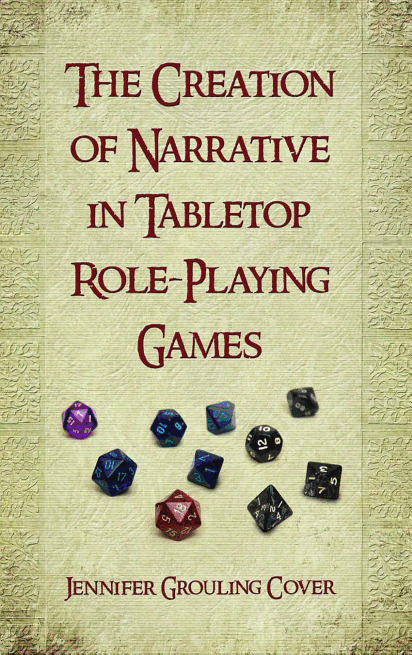
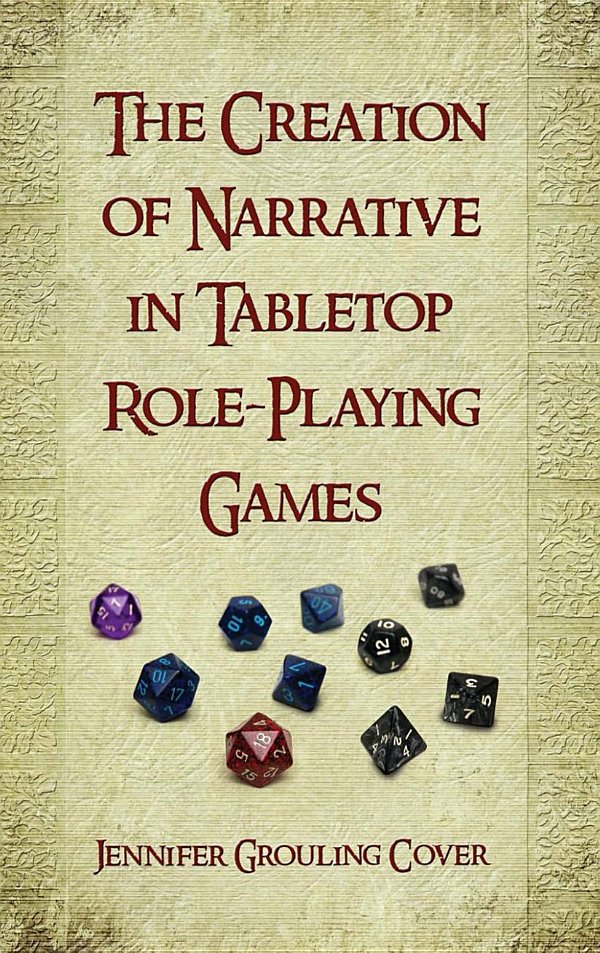
The Creation of Narrative in Tabletop Role-Playing Games

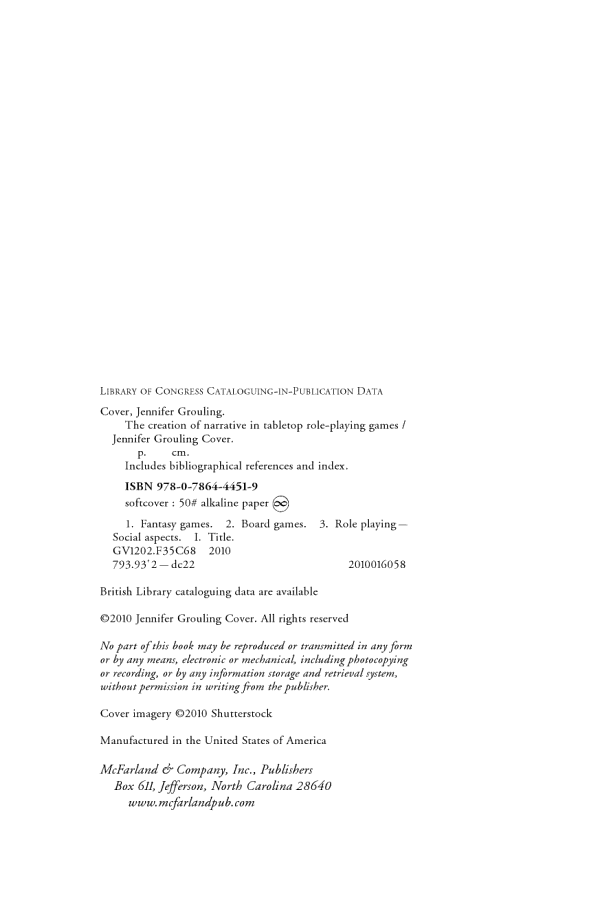
To my husband, Scott, for introducing me to D&D and to the wonderful worlds he creates.
Abbreviations, Terms, and Transcription Symbols
Gaming Terms
CRPG: computer role-playing game
D&D: Dungeons and Dragons
DM: dungeon master, the term for the gamemaster in D&D
DMG: Dungeon Masters Guide
GM: gamemaster, the one who runs a TRPG campaign
LARP: live action role-play
MMORPG: massively multiplayer online role-playing game
NPC: non-player character
RPGA: role-playing game association, an organization for D&D players
TRPG: tabletop role-playing game
XP: experience points
Terms from Possible-World Theory
(adapted from Ryan, Possible Worlds, vii)
APW: An alternative possible world in a different system of reality, a fiction that is accepted as true when the reader shifts to this world.
AW: The actual world is our reality.
NAW: The narratorial actual world is the world that the narrator presents to the narratee.
TAW: The textual actual world is the view of the text reference world that is presented by the author.
TRW: The textual reference world is the world that the text claims as factual. It is the alternative possible world that the text refers to.
Transcription Symbols
[ overlapping utterances
(#) length of pause in seconds, noted if 3+
: extension of sound or syllable
/ rise in intonation
CAPS loud and emphasized utterance
(laughter) general laughter in the group
(laugh) laughter by participant indicated
... speaker trails off
--- speaker self-corrects
Preface and Acknowledgments
It was the fall of 2003, and my first semester of graduate school. I signed up for a course called Discourse Analysis, thinking it had something to do with Foucault. As it turned out, it was really a methods course in linguistics, and when my professorDavid Hermantold us we needed to tape record a conversation, I had the perfect idea: I would record part of a session from my Dungeons and Dragons (D&D) group. I signed up to present to the class under the unit called narrative analysis, thinking my recording would be a perfect fit. I quickly came up against the traditional linguistic definitions of narrativethat it was a story, told about an event in the past by a narrator to a narratee. Maybe its not a narrative, David Herman said in reference to my D&D transcript. But as I sat there week after week engrossed in the story of Whisper and her companions in the world of Sorpraedor, I knew that at least part of what kept me interested was the story I was experiencing. And thus, I continued to attempt to reconcile my personal experience with the narrative theory that drew my academic attention.
My course project turned into other course projects, including a seminar paper for Carolyn Millers rhetorical criticism class where I first tested out some of my ideas on the rhetoric exigence behind the tabletop role-playing game. These course projects turned into a thesis, under the direction of David Herman, David Rieder, and Mike Carter. I can not thank my committee enough for their input in this process. It was one the most rewarding writing experiences, and when David Herman suggested that my thesis had the potential for a book, I was floored. After my defense, I went out and bought some shiny new dice for my D&D game.
At times, I wished that, like my sorceress Whisper, I could have sum moned some magic energies, perhaps a polymorph spell, to magically transform the thesis into a book length project. Of course, I found it wasnt that simple. However, with the help of many people, I was able to complete what really is a transformation. I added massive amounts of research to this book project, I completely rewrote nearly everything, and I even changed some of my ideas.
I would first and foremost like to thank my research participants. From those anonymous gamers who completed a survey to my long-time gaming companions, this book is about you and in many ways by you. Even if your names do not appear here, your words and your stories do. I hope I have represented you well.
Then there were those who accompanied me on my writing journey. Like in D&D, some companions were with me all the way, while others came and went. My officemate Dan Lawson was rather like an oracle, who I consulted multiple times over the course of the book in times of need. We talked about ideas, and he directed me to several key sources.
Patrick Johnson was the equivalent of the fellow adventurer met in a tavern in the D&D world, who says, what is your quest? And when you tell him, responds, Cool. Can I come along? I met Pat in line for lunch at the Writing Program Administrators (WPA) conference in July 2009 as I was finishing this book, and our conversation quickly turned to my research and D&D. Pat kindly volunteered to provide additional feedback on one of my revised chapters.
There were others who helped me out along the way, from Professor Brian Epstein, who fielded my questions about possible-worlds theory to my many professors at Virginia Tech who were flexible with my Ph.D. work while I was writing and who answered any number of questions on publishing and book writing. There are my parents, who raised me to be an academic and a writer, and my husband who is the backbone of this book. Scott not only got me interested in D&D, but also pushed me to continue my academic work on the topic. He has held my hand when I was frustrated, and celebrated with me when I was excited, and is the main reason this book exists. Without the support of these people, I could not have completed this project.
Finally, there are those who would be considered members of my adventuring party, had this book been a D&D campaign. Dean Browell and Tim Lockridge are two of the smartest, most talented people I know, and I was extremely fortunate to have their feedback through the entire course of writing this book. Dean, who wrote a dissertation on World of Warcraft, served as my MMORPG police, helping me see beyond D&D to where my book might interact with videogame research. Tim is everything one could ask for in a readerhe is the type of guy that finds the loose thread in your writing, pulls on it just hard enough that everything starts to fall apart, and then hands you what you need to sew it back up again. This book is inordinately better because of his feedback.
However, all of these efforts would be in vain if it werent for you my reader. Whether you are a gamer, a researcher, or just a curious onlooker, I invite you to take an active role as you read this book. I have tried here to write a book that will be useful in multiple disciplines, and it is my hope that it will help spur discussion about tabletop role-playing in multiple forums. Whatever your position in relation to this text, I hope that I have shown here that your voice counts. I have been told multiple times by multiple people that Im not supposed to write a book yet, that as a graduate student I dont have a book in me. As the physical artifact in your hand provesI did. Likewise, I believe that you, my reader, has something to say, and I, for one, would like to hear it.
Font size:
Interval:
Bookmark:
Similar books «The Creation of Narrative in Tabletop Role-Playing Games»
Look at similar books to The Creation of Narrative in Tabletop Role-Playing Games. We have selected literature similar in name and meaning in the hope of providing readers with more options to find new, interesting, not yet read works.
Discussion, reviews of the book The Creation of Narrative in Tabletop Role-Playing Games and just readers' own opinions. Leave your comments, write what you think about the work, its meaning or the main characters. Specify what exactly you liked and what you didn't like, and why you think so.

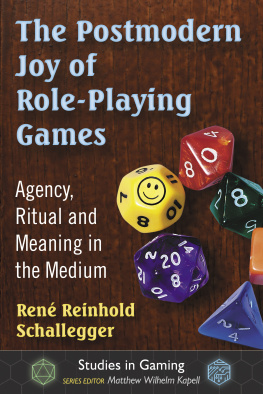
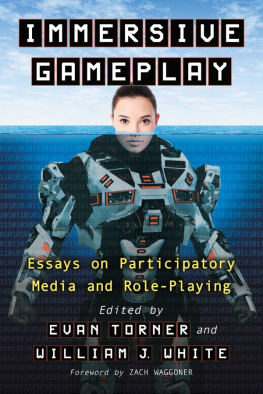
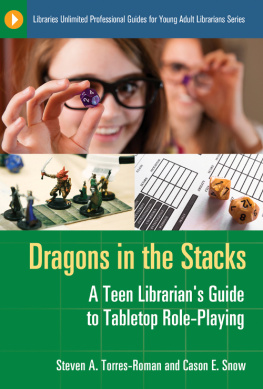
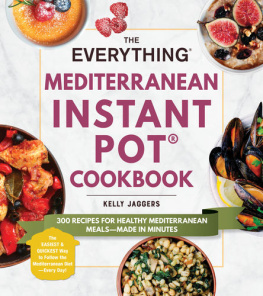
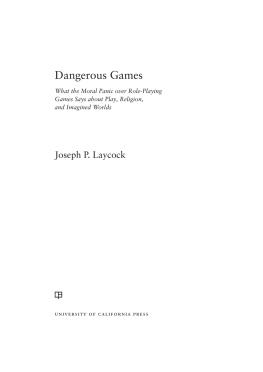
![Ethan Ham [Ethan Ham] - Tabletop Game Design for Video Game Designers](/uploads/posts/book/119417/thumbs/ethan-ham-ethan-ham-tabletop-game-design-for.jpg)